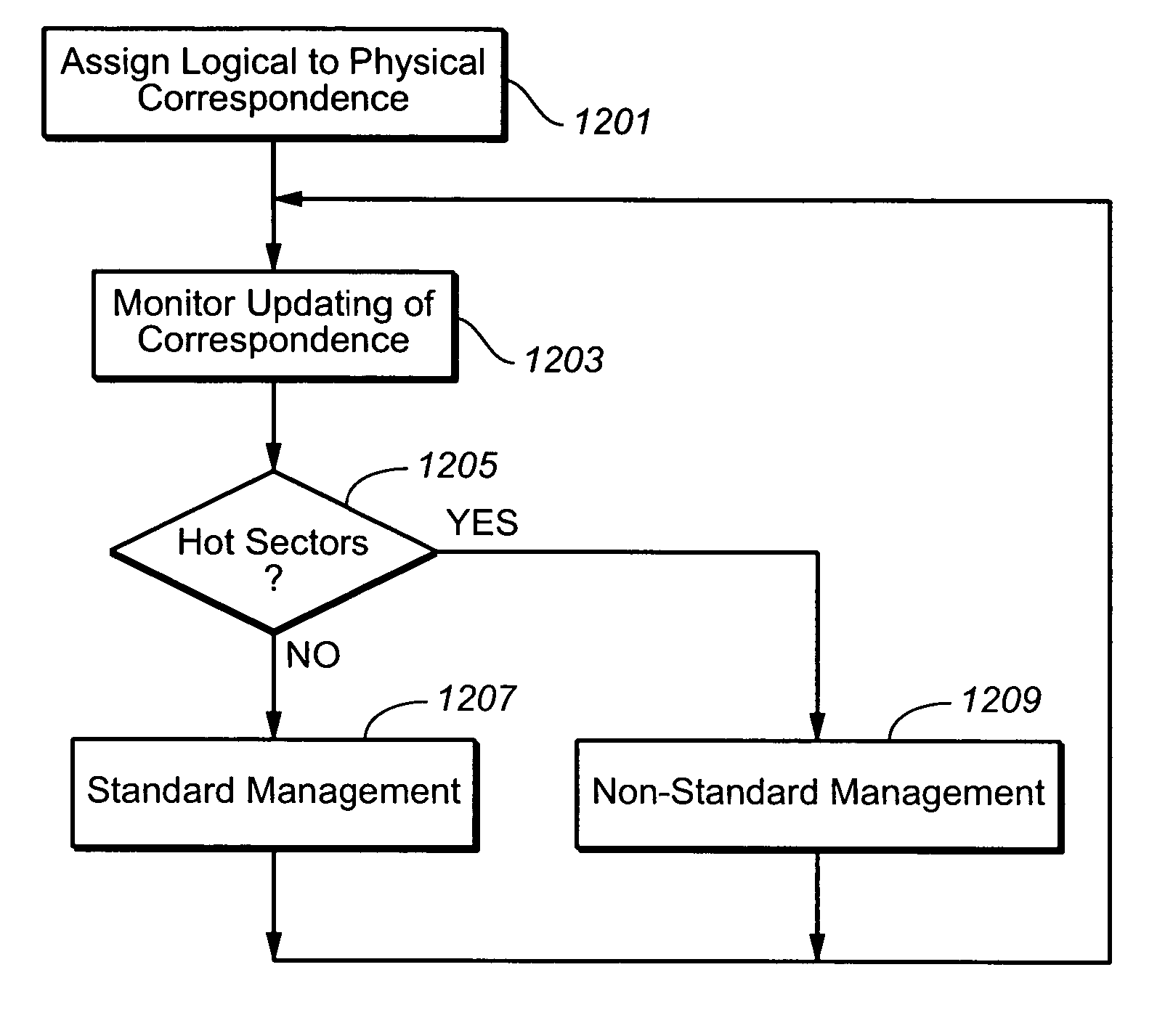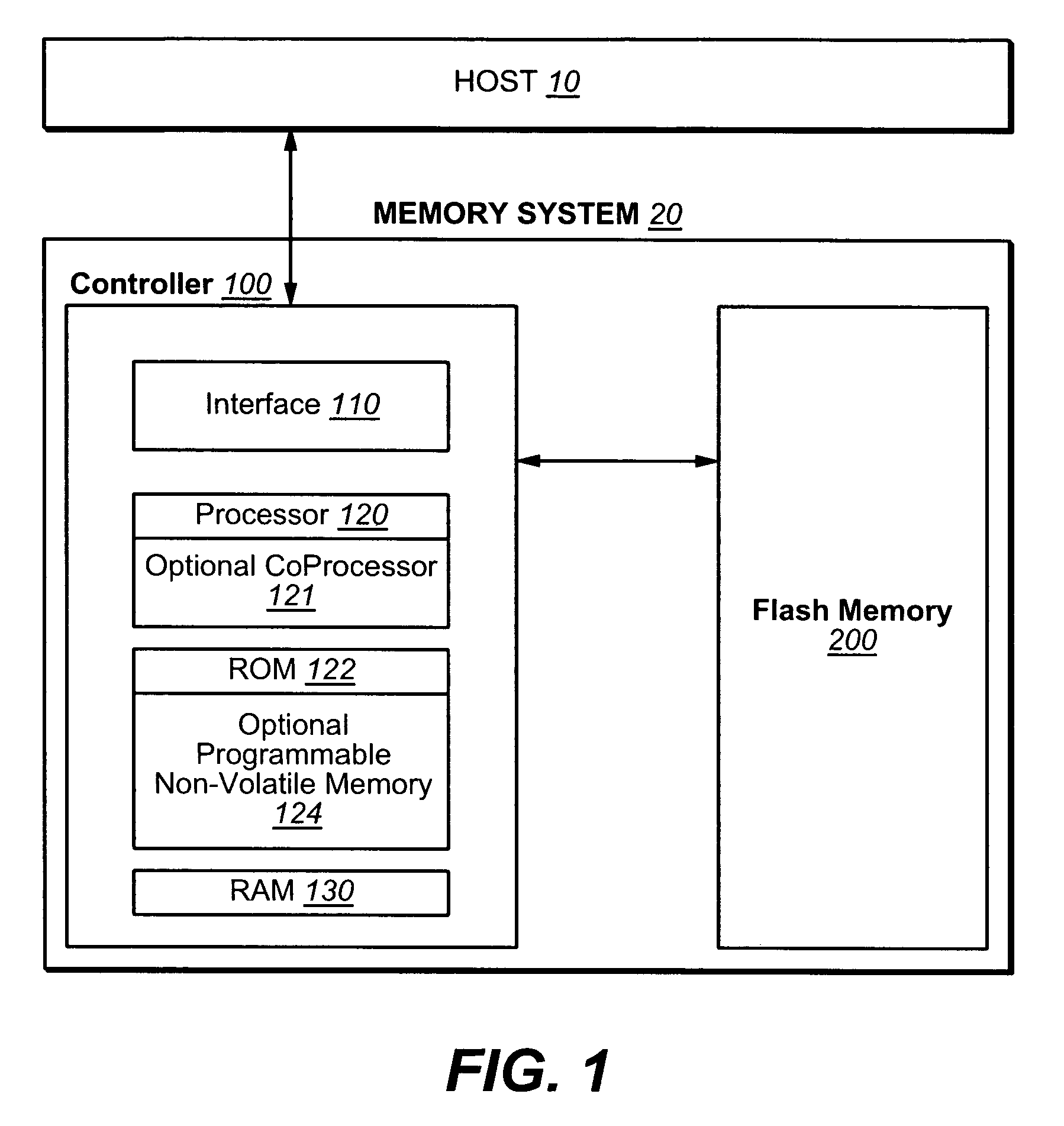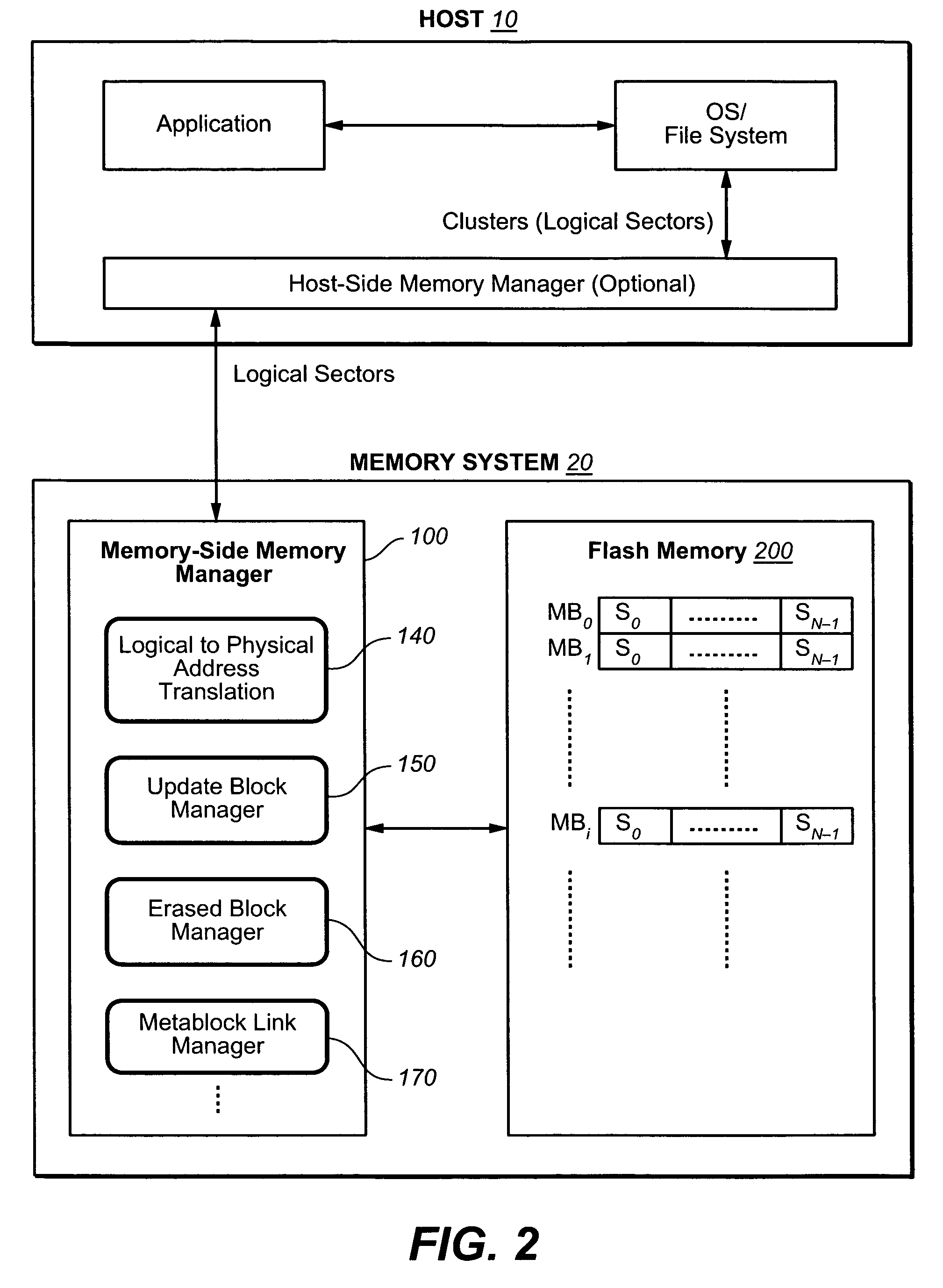Methods for adaptively handling data writes in non-volatile memories
a data write and non-volatile technology, applied in memory architecture accessing/allocation, instruments, computing, etc., can solve the problem of limited number of such non-standard zones, and achieve the effect of reducing the frequency and amount of garbage collection operations
- Summary
- Abstract
- Description
- Claims
- Application Information
AI Technical Summary
Benefits of technology
Problems solved by technology
Method used
Image
Examples
Embodiment Construction
[0031] As in the Background and the referenced cited there, for mass data storage performance can be improved through increased parallelism, including the formation of larger logical structures, such as meta-blocks, from the underlying physical structures of the memory. Such structures are described in more detail in U.S. patent applications Ser. Nos. 10 / 750,155, filed Dec. 30, 2003; 10 / 917,888, 10 / 917,867, 10 / 917,889, and 10 / 917,725, all filed Aug. 13, 2004; 10 / 750,157, filed Dec. 30, 2003; and 10 / 846,289, filed May 13, 2004, which are hereby incorporated by reference. However, when a host accesses a small logical area, such as a sector or a collection of a small number of sectors, of the card repeatedly and the size, number and location of those small logical areas are not predictable, the controller is faced with a large amount of data relocation, or “garbage collection”, and long access time latencies. Various techniques for handling the smaller data portions can be found, for e...
PUM
 Login to View More
Login to View More Abstract
Description
Claims
Application Information
 Login to View More
Login to View More - R&D
- Intellectual Property
- Life Sciences
- Materials
- Tech Scout
- Unparalleled Data Quality
- Higher Quality Content
- 60% Fewer Hallucinations
Browse by: Latest US Patents, China's latest patents, Technical Efficacy Thesaurus, Application Domain, Technology Topic, Popular Technical Reports.
© 2025 PatSnap. All rights reserved.Legal|Privacy policy|Modern Slavery Act Transparency Statement|Sitemap|About US| Contact US: help@patsnap.com



